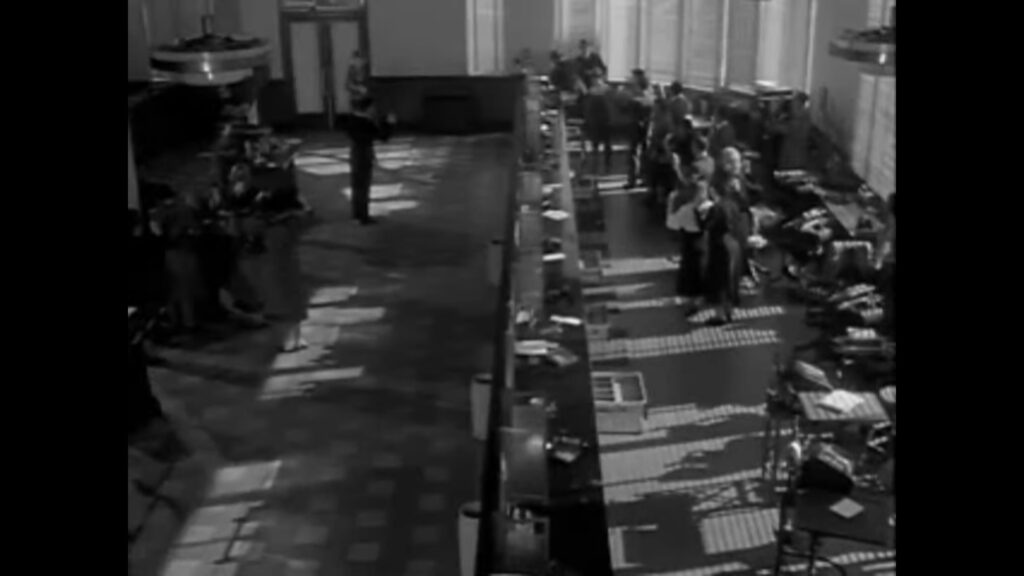
Today’s film is 1950’s “Highway 301,” starring Steve Cochran (George Legenza), Virginia Grey (Mary Simms), Gaby André (Lee), Edmon Ryan (Det. Sgt. Truscott; narrator), Robert Webber (William B. “Bill” Phillips), Wally Cassell (Robert “Bobby” Mais), Aline Towne (Madeline Welton), Richard Egan (Herbie Brooks), Edward Norris (Noyes Hinton), and Lyle Latell (Police Officer Murray). Directed by Andrew L. Stone; cinematography by Carl Guthrie. Produced by Bryan Foy. Distributed by Warner Brothers. Screenplay by Andrew L. Stone.
This film is based on the exploits of the real Tri-State Gang, a gang which committed crimes across Virginia, Pennsylvania, and Maryland in the 1930s. (The filmmakers replaced Pennsylvania with North Carolina, for unknown reasons.) The story is set in 1950, rather than the 30s; however, some of the depictions in the film are directly lifted from actual events.
The movie opens with a “square-up,” where a real person makes a statement to the audience with the basic message that “crime doesn’t pay.” In this case, we get three square-ups, from the governors of Virginia, North Carolina, and Maryland telling us this. Square-ups were usually added into true crime movies as a way of mollifying the censors (whether studio or community ones).
This is the only video clip I could find online, taken from the movie’s early scenes:
I thought this shot within the clip was particularly evocative of the film noir style:

In spite of the criminals of the film grousing about how stupid cops are, it’s the gang members who end up screwing up, exposing themselves to discovery. Examples: leaving a witness who saw them in the getaway car (the tail end of the posted video) and then noticed that car at an abandoned nearby farm, who then tips off the police. In another example: Legenza decides to permanently shut up his girlfriend for blabbing. He does this in front of an elevator operator. And then there’s the big score they’re to make from robbing an armored car, only to discover that the millions of dollars are cut and were on their way to the incinerator.
The film ends with Det. Sgt Truscott saying, “…the officers all agreed that these men had been handled too leniently in the early stages of their careers in crime. You cannot be kind to congenital criminals like these. They would show you no mercy. Let them feel the full impact of the law.”
For some reason that quote stuck out. No idea why…
The ending veers from real events, in that Legenza and a confederate are tried and facing execution, only to escape the Richmond VA city jail when someone smuggles two loaded guns in a can of chicken. The real criminals are recaptured a few months later, after extending their crime spree. At their final trial, the judge sentences them to be electrocuted within the week.
The acting was a little too obvious, but the directing and writing was solid. They did a really good job creating suspense in a few pivotal scene sequences. So I give it 3.5 out of 5 unfiltered cigarette puffs.
Next week’s movie is “Hangover Square,” set in Edwardian England. Should be fun!
